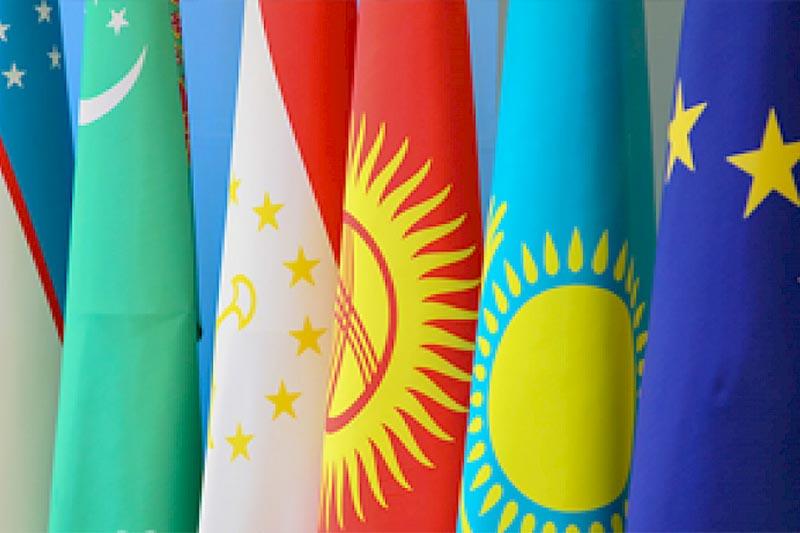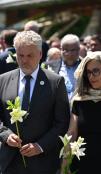Opportunities for more cooperation discussed in the EU-Central Asia ministerial call

This was an opportunity to discuss regional and international issues of common interest between the EU and countries of Central Asia, and advance region-to-region cooperation on various issues, including connectivity, digitalisation, sustainable energy, security, human rights and the rule of law.
Due to COVID-19 restrictions, the meeting convened online, together with Foreign Ministers of Central Asia: Kazakhstan, Kyrgyz Republic, Tajikistan, Turkmenistan and Uzbekistan. The participants also had the opportunity to exchange views on future cooperation and priorities for the programming of the EU aid under the 2021 – 2027 budget cycle.
The priorities of the new EU Strategy on Central Asia adopted in 2019, in particular its focus on promoting resilience, prosperity and regional cooperation have never been more relevant.
Since the breakout of the pandemic, the EU has allocated more than €134 million to the region as part of its “Team Europe” solidarity package. Funds have been granted to meet the immediate and longer-term needs of the Central Asian countries, in particular strengthening the health, water and sanitation systems and addressing the socio-economic repercussions of the crisis. The EU has been cooperating with the World Health Organisation, supporting the regional project on response to COVID-19.
During the ministerial videoconference, the EU High Representative and Central Asian Ministers discussed ways to advance their partnership in a way that helps to tackle the wide range repercussions of the pandemic. They reaffirmed their common determination to take forward a broad cooperation agenda that helps Central Asian states to move to more resilient, greener and more sustainable development models. They have also stressed the importance of sustaining progress in the rule of law, democratic governance as well as human rights, including fundamental labour rights and gender equality. At the ministerial meeting, the EU announced the launch of the EU-UN Spotlight initiative in Central Asia to eliminate violence against women.
Participants commended the recommendations of the online "EU-Central Asia Civil Society Forum" held on 27 October 2020, which highlighted the need for a meaningful participation of civil society organisations in public decision-making, and for creating more opportunities for youth.
Towards closer cooperation on sustainable connectivity and economic modernisation
The EU’s engagement with the region is built upon Central Asia’s geographical location and tradition of bringing Europe and Asia together. Countries of Central Asia are playing a pivotal role in EU efforts to promote Europe-Asia connectivity. It is also a fast-growing market of 70 million inhabitants.
During the ministerial videoconference, participants confirmed their intention to organise a first-ever “EU-Central Asia Economic Forum” in 2021. This Forum would give special attention to the promotion of innovative and sustainable approach to economic and business development, with a focus on greening the economy in all its aspects.
Ministers of Central Asia were encouraged to continue working towards the full implementation of the Paris commitments on climate and the region’s transition towards a green economy, including sustainable energy.
The participants in the ministerial stressed the need to intensify cooperation in connectivity, building upon the EU's Strategy on connecting Europe and Asia and on the opportunities that would be provided under new EU financial instruments to stimulate private investment in sustainable connectivity projects.
EU – Central Asia cooperation for peace and security
The ministerial videoconference provided an opportunity for the participants to take stock of their strong cooperation in security. The EU presented a new Law Enforcement in Central Asia (LEICA) cooperation project, which will aim to foster closer collaboration in security and counterterrorism.
As a peaceful and prosperous Afghanistan free of terrorism is a cornerstone for the development of the entire region and beyond, the participants highlighted the need for intensified cooperation to promote an inclusive peace process and sustainable development in Afghanistan.
They discussed opportunities for linking Central Asia and Afghanistan more closely, including through projects in border management and energy, and welcomed the participation of Kazakhstan, Uzbekistan and the Kyrgyz Republic in a trilateral programme to Support the Economic Empowerment of Afghan Women through Education and Training.





